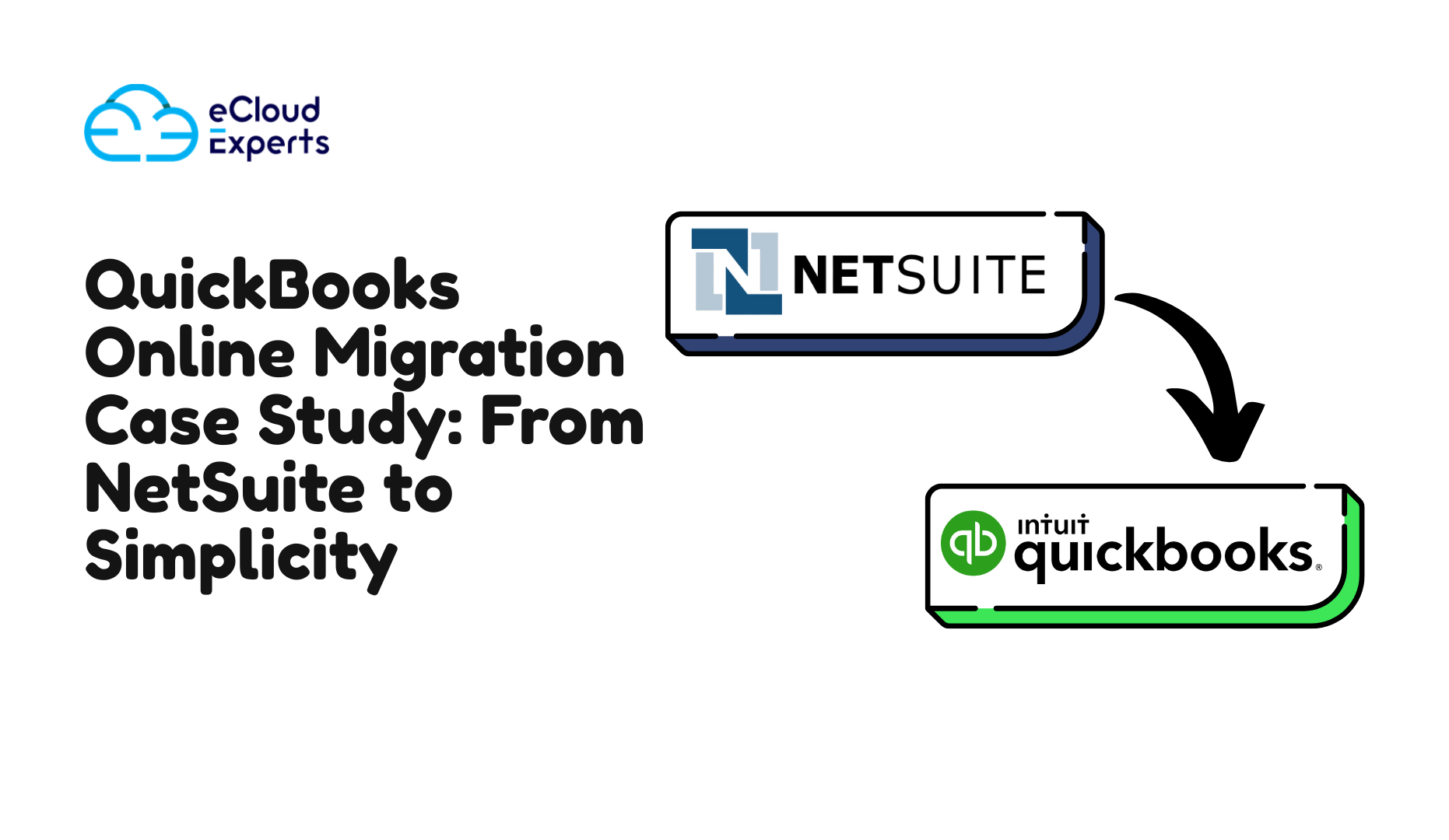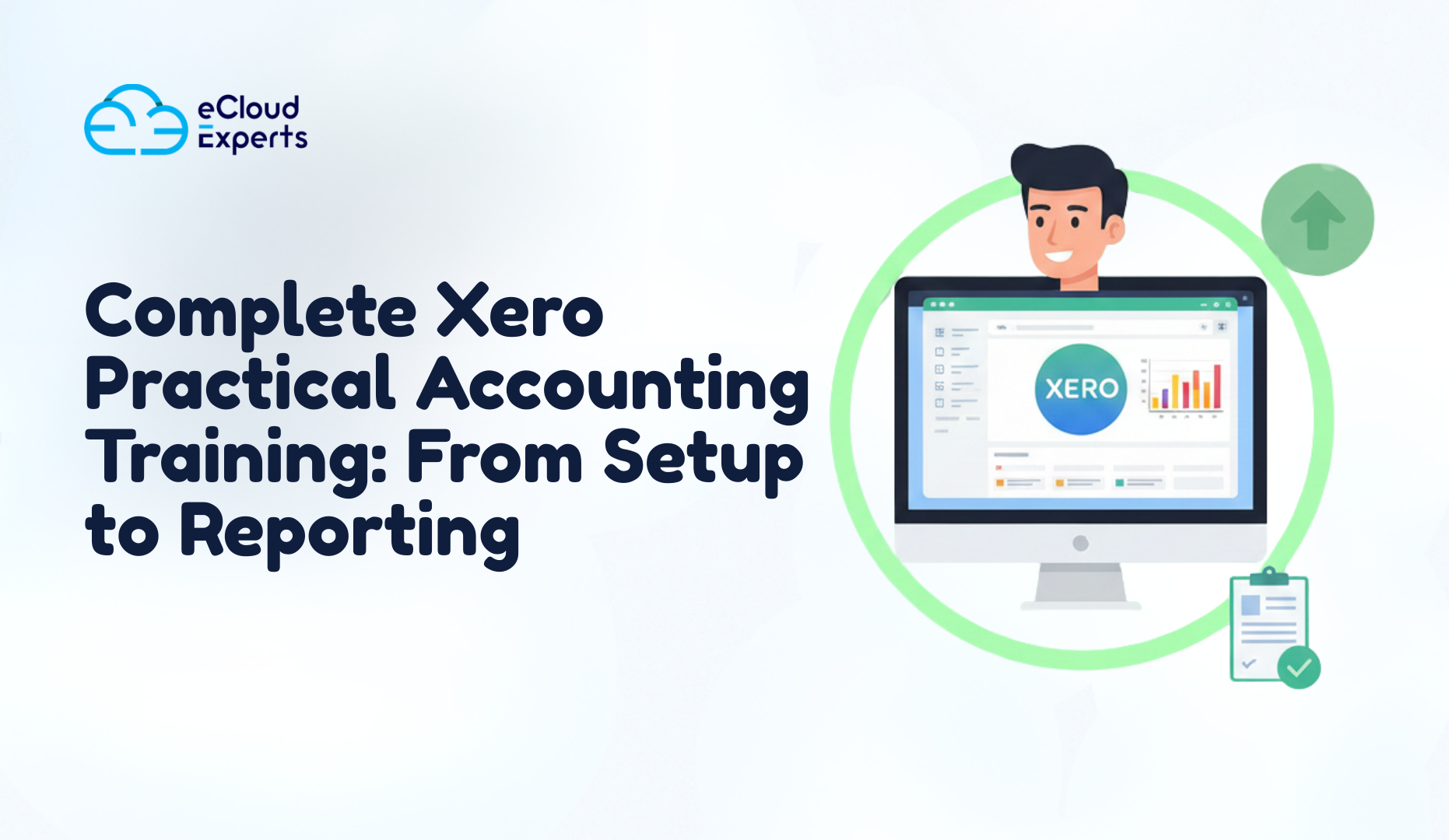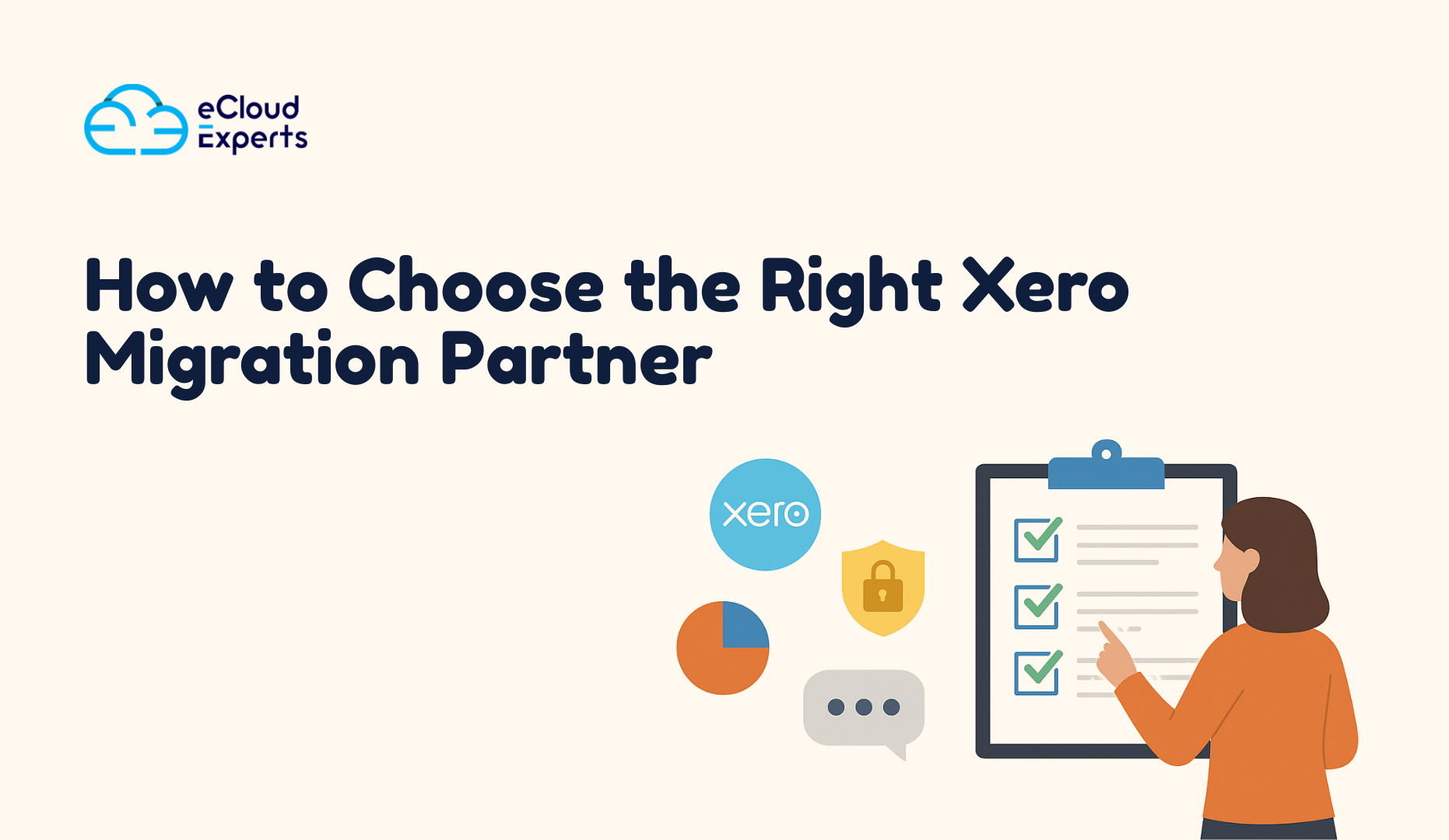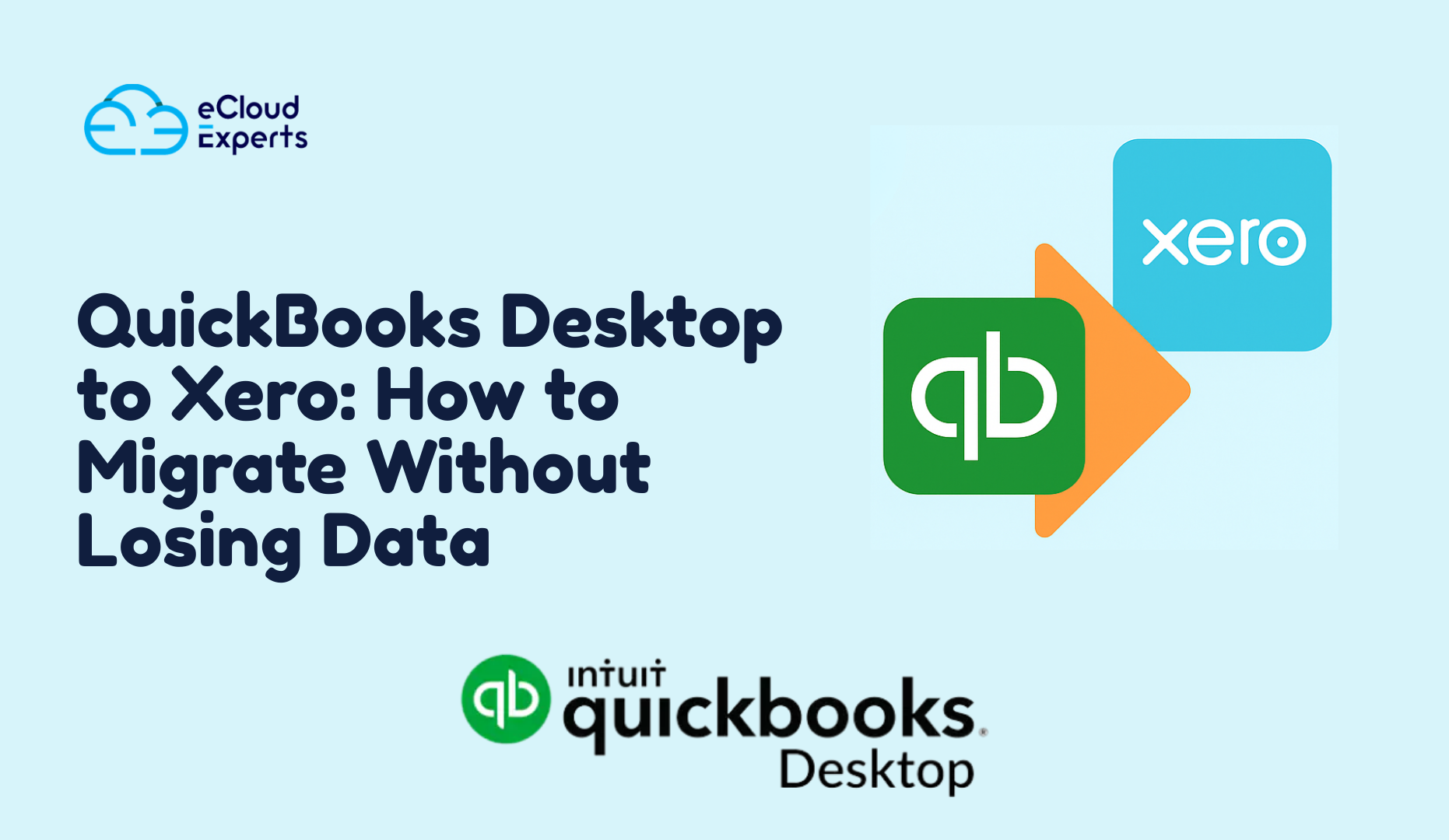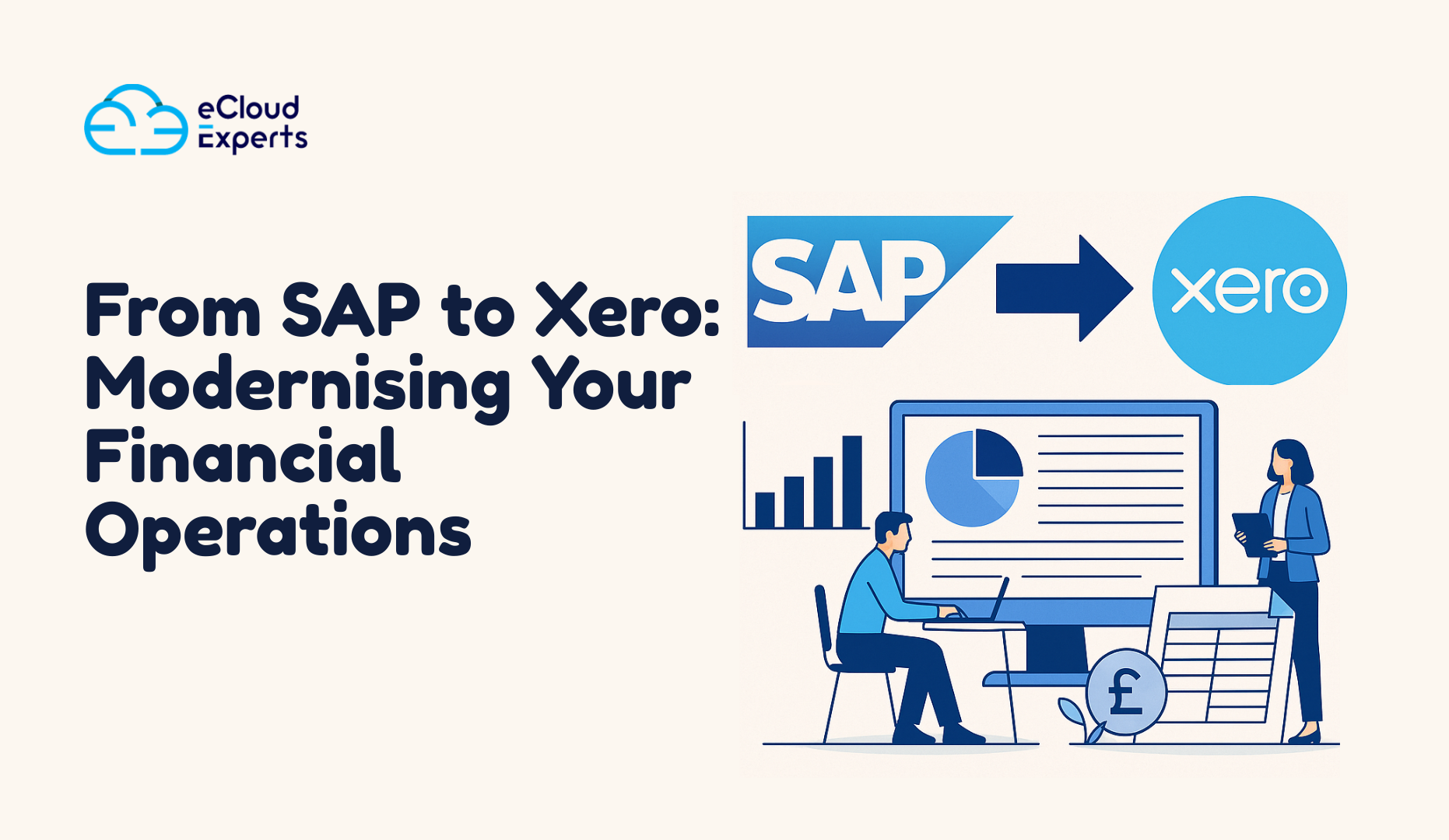Every business reaches a point where their accounting system no longer serves them. Many mid-sized companies begin with ERP platforms like NetSuite, hoping that complexity equals control. But over time, what was once a powerful tool can become an obstacle. That’s exactly the story behind this NetSuite to QuickBooks Online case study.
This is more than just a software switch. It’s a journey from overwhelming processes to streamlined clarity. Companies that once thought ERP was their only option are now turning to cloud-based solutions. The rise of ERP to QuickBooks migration is proof that simpler can indeed be smarter.
If you’ve ever felt trapped by costly ERP maintenance, endless user training, or rigid workflows, this case study will feel familiar. And by the end, you’ll see why QuickBooks Online has become the go-to for SMEs ready to focus on growth instead of battling their accounting system.
Why This Case Study Matters in 2025
2025 is shaping up to be the year of transition. Businesses are tired of being locked into high-cost ERP contracts. They want agility, affordability, and cloud access. That’s why this NetSuite to QuickBooks Online case study is more than one company’s story it’s part of a bigger trend.
Across industries, decision-makers are asking the same question: “Do we really need ERP anymore?” For some, the answer is still yes. But for many, moving from ERP to QuickBooks is a smarter step. QuickBooks Online offers everything SMEs and mid-sized firms need without the baggage.
Think about what most finance teams need daily:
- Clear reporting
- Fast invoicing
- Accurate reconciliation
- Easy collaboration
QuickBooks Online delivers all that, while ERPs often bury these basics under layers of complexity. This case study shows how a real company made the leap and why many others are lining up to follow.
Company Background: Who Switched from NetSuite
The company featured in this NetSuite to QuickBooks Online case study is a UK-based distributor managing over 2,000 products. They first adopted NetSuite five years ago when expansion demanded an ERP system. At the time, it seemed like the right choice.
But as the years passed, cracks began to show. NetSuite was built for enterprise-scale companies with large finance teams. For this SME, it felt like driving a Formula 1 car to do the weekly grocery run.
Their biggest issues included:
- Steep licensing costs
- Too much downtime for updates
- Difficult integrations with eCommerce platforms
- Heavy staff training requirements
Eventually, leadership realized they were paying for functions they didn’t use, while struggling with basics like invoice processing. That’s when the idea of moving from ERP to QuickBooks gained traction.
Challenges with NetSuite ERP
This NetSuite to QuickBooks Online case study wouldn’t exist without the pain points that triggered the switch. Let’s break down the ERP challenges that made change unavoidable.
Cost Burden
ERP solutions like NetSuite come with:
- High licensing fees
- Expensive consultants for every customization
- Yearly support contracts
Complexity
The system demanded:
- Weeks of onboarding for new hires
- A reliance on external NetSuite admins
- Time-consuming manual processes
Integration Roadblocks
Despite being marketed as flexible, NetSuite struggled with:
- Shopify integration
- Payroll syncing
- VAT reporting
Employee Frustration
Day-to-day users felt lost in a sea of unnecessary features. Tasks that should take minutes were stretched into hours.
By the time leadership compared costs and frustrations, the conclusion was clear: this wasn’t sustainable. It was time to look at ERP to QuickBooks migration seriously.
Why QuickBooks Online Was the Right Fit
Choosing QuickBooks wasn’t just about leaving ERP—it was about finding something better. This NetSuite to QuickBooks Online case study shows why QuickBooks Online was the natural choice.
Here’s why:
- Affordability: One-third the cost of NetSuite ERP.
- Ease of Use: Staff learned the basics in a single afternoon.
- Cloud-First Design: Access from anywhere, anytime.
- Integrations: Shopify, Amazon, and banking apps connected instantly.
Moving from ERP to QuickBooks wasn’t a downgrade—it was a smart upgrade. The company discovered they didn’t need ERP-level features. Instead, they needed a solution designed for growing SMEs. QuickBooks Online fit like a glove.
The Migration Journey: Step by Step
A smooth migration doesn’t happen by chance. This NetSuite to QuickBooks Online case study highlights the exact process.
Step 1: Planning
The company outlined:
- What data to keep
- What to archive
- Which reports were critical
Step 2: Data Mapping
Every field in NetSuite was matched to QuickBooks Online. This prevented confusion once data moved.
Step 3: Migration Execution
Using advanced migration tools, they transferred:
- Sales invoices
- Vendor bills
- Payroll history
- Chart of accounts
Step 4: Reconciliation
The team checked balances, aged receivables, and payroll summaries to ensure nothing was missing.
Step 5: Training & Go-Live
Staff completed a two-hour workshop and started using QuickBooks confidently from day one.
Migrating from ERP to QuickBooks isn’t always easy. But with expert guidance, the process was efficient, accurate, and stress-free.
Results After Migration: Measuring Success
The results of this NetSuite to QuickBooks Online case study speak volumes. Within three months, the company reported measurable gains.
Cost Savings
- Reduced software costs by 65%
- Lowered consulting expenses significantly
Time Efficiency
- Weekly reconciliation dropped from 8 hours to 2
- Payroll now runs in under 20 minutes
Staff Satisfaction
- Employees feel empowered instead of frustrated
- Training new hires takes hours, not weeks
Reporting Improvements
- Real-time dashboards available to leadership
- VAT reporting simplified for compliance
Moving from ERP to QuickBooks was more than a switch—it was a turning point for growth.
Lessons Learned from the Case Study
Every migration teaches something valuable. This NetSuite to QuickBooks Online case study is no exception.
Key takeaways include:
- Plan Before You Move: Data clean-up is vital.
- Don’t Go It Alone: Expert support avoids costly mistakes.
- Train Staff Early: Adoption is faster when everyone’s ready.
- Think Long-Term: Moving from ERP to QuickBooks isn’t just about today—it’s about future scalability.
Comparing ERP vs QuickBooks Online in 2025
When ERP Makes Sense
- Enterprises with 500+ employees
- Businesses needing advanced manufacturing modules
- Complex supply chain management
When QuickBooks Online Wins
- SMEs looking for flexibility
- Fast-growing businesses tired of ERP costs
- Companies that value integrations and usability
The truth is simple: not every business needs ERP anymore. For many, ERP to QuickBooks migration unlocks more growth than staying stuck in complexity.
Final Thoughts
This NetSuite to QuickBooks Online case study proves a vital point: simpler systems often deliver bigger results. The featured company didn’t lose capabilities they gained freedom, agility, and confidence.
If your ERP feels like a burden instead of a benefit, it may be time to rethink your path. Countless SMEs are already making the switch from ERP to QuickBooks and reaping the rewards.
Ready to explore your own QuickBooks Online migration? Talk to eCloud Experts today. We’ll help you evaluate your current system, plan a smooth transition, and set your business up for long-term success.

